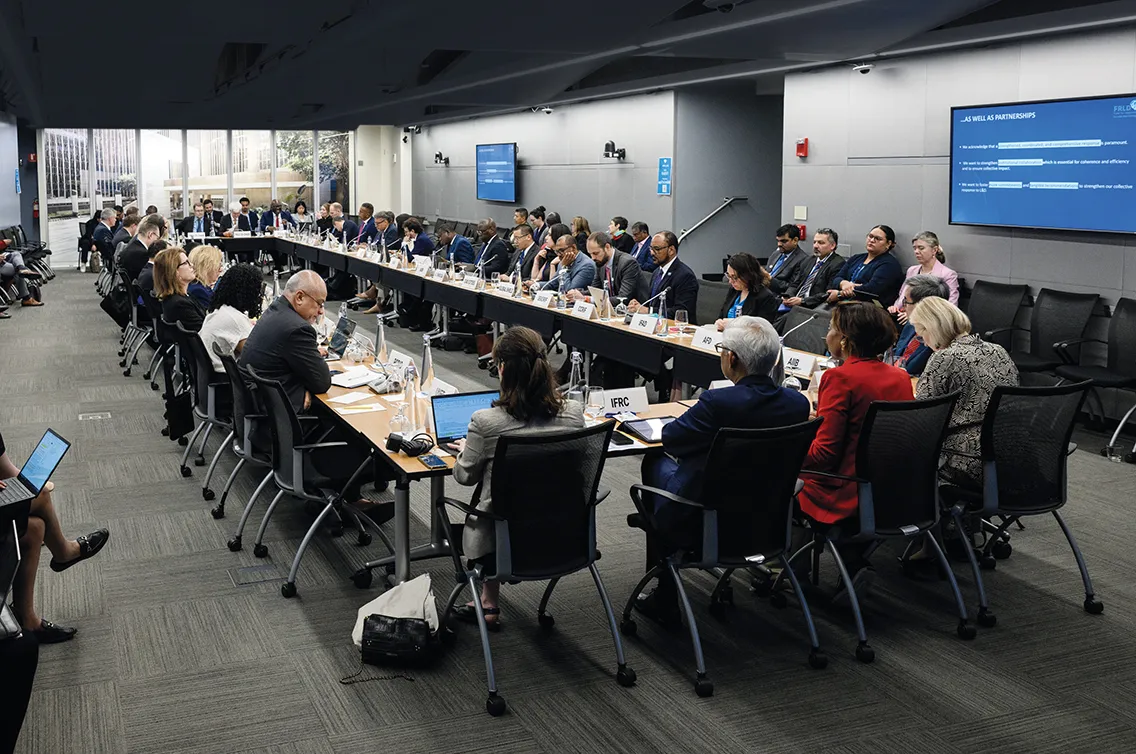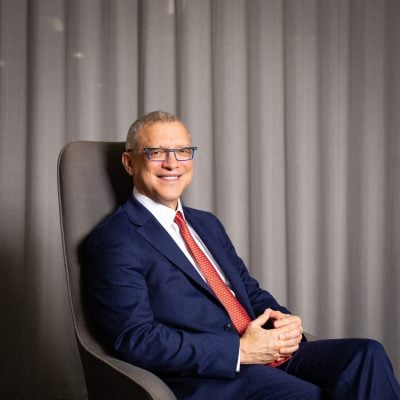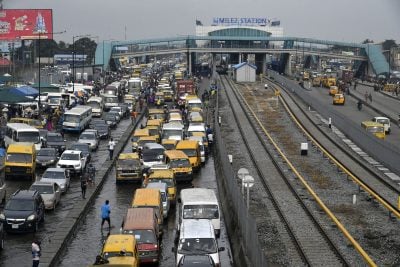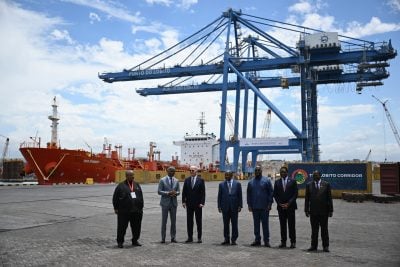This article was produced with the support of Fund for responding to Loss and Damage (FRLD)
At the inaugural high-level dialogue of the Fund for responding to Loss and Damage (FRLD), held on the sidelines of the World Bank-IMF Spring Meetings in Washington DC, speakers stressed the need for a unified global approach to combat the effects of climate change, especially on vulnerable nations.
Convened in conjunction with the office of the United Nations Secretary General under the theme “Strengthening Responses to Loss and Damage through Complementarity, Coherence, and Coordination”, the Dialogue brought together high-level representatives from governments, multilateral development banks, UN agencies, climate funds, philanthropic foundations, civil society organisations, and financial institutions to forge a common path for supporting vulnerable countries.
Established at COP27 in Sharm El-Sheikh and operationalised at COP28 in Dubai, the FRLD is intended to support especially vulnerable countries to contain the impact of climate-linked disasters. To date, a total of $768m in pledges has been received by the Fund, out of which an initial allocation of $250m is set to be disbursed under the Barbados Implementation Modalities (BIM). Adopted at the fifth board meeting of the FRLD in April 2025, the BIM plan is expected to earmark at least 50% of the initial allocation to support Small Island Developing States (SIDS) and Least Developed Countries (LDCs).
Call for cooperation
In their opening remarks the co-chairs of the FRLD’s board, Jean-Christophe Donnellier and Richard Sherman, called for strengthened cooperation and alignment between all stakeholders. Donnellier emphasised the need for a response that is “timely, adequate, comprehensive and efficient,” while Sherman urged participants to prioritise country ownership and avoid the challenges that come from complex procedures that countries face in trying to access other climate funds. “We are not a fund with country offices. You are our delivery partners,” he said.
Muhammad Aurangzeb, minister of finance of Pakistan, warned, drawing on the country’s experience of devastating floods in 2022, that climate change is a real and present threat. “Climate change is an existential threat and we are living it,” he said, adding that an agile fund with simple access procedures would enable countries to better and quickly respond to disasters. “We are dealing with our own bureaucracies. We cannot wait years for decisions. What we need are speedy disbursements,” he stressed.
Ibrahima Cheikh Diong, the FRLD’s first executive director, said the fund was committed to working with other stakeholders to reduce fragmentation and duplication in funding climate actions around the world. “Today marks the beginning of a new era of coordinated action driven by global solidarity and leadership,” he declared, adding that “our shared goal is clear: to ensure that the most vulnerable nations affected by climate-induced loss and damage, receive timely and effective support that reflects their priorities and realities.”
The event also saw two lively panel discussions on “New Partnerships for Enhanced Responses” and “Strategic Recommendations and Collaborations”. Panellists reaffirmed the need for multilateralism, which they described as critical to finding solutions to rapidly accelerating climate change. The international community must do more to leverage the existing tools, including the FRLD, to devise a system of responses that do not leave any countries and communities behind. The fund was urged to complement and coordinate with other existing structures and funding mechanisms to ensure that waste is minimised and greater impact is achieved. Private and philanthropic capital must also be co-opted into funding disaster responses.
Informing preventive actions
To minimise the impact of disasters, panellists urged the use of scientific data to inform preventive actions. Early warning systems and risk analysis tools, it was said, can help reduce the loss of lives and minimise damage to property. They also enable speedy responses as resources can be deployed even before the disaster itself occurs. A multidisciplinary approach that links data, financing and policymaking will enable countries to better address the threat of climate change and contain the incidence of climate-linked disasters, while also ensuring more efficient use of resources. Prevention, it was emphasised, is less expensive than response.
The fund was also urged to work with local organisations that already have institutional knowledge of affected communities, rather than creating new and parallel institutions. By leveraging existing mechanics and coordinating with local organisations, FRLD can transform climate finance into a community-led effort that better addresses the needs of vulnerable communities. Speakers stressed the need for a departure from business-as-usual to a new approach that prioritises community needs, the rights and dignity of those affected and better access to finance for locally-led initiatives and interventions.
The roundtable discussions showed that the FRLD can count on an ecosystem of stakeholders including multilateral development banks, climate funds, insurance entities, humanitarian agencies and civil society organisations in its mission to deliver timely support to communities most affected by climate-induced loss and damage.
Carolina Fuentes Castellanos, director of the Santiago Network Secretariat, noted, for example, that “the Santiago Network and FRLD are linked by design but also by purpose. One of our core functions is to enable access to finance, technology and capacity building. The Santiago Network brings an existing toolbox, technical guidance and technical assistance platform and a regional presence with 15 members ready to provide support. This is a call to expand our collective response to Loss & Damage. We need to collaborate but also act in synchronicity.”
Flexibility and innovation
In his closing remarks, Donnellier encouraged stakeholders to shape the Fund’s long-term framework with “flexibility and innovation”.
He also called for partners to contribute directly to the operational modalities being developed.
Sherman acknowledged that the elaborate access procedures associated with some existing funds had compromised their effectiveness and usefulness and vowed that the FRLD would employ a different approach that would yield timely and effective responses to climate disasters.
Diong, for his part, thanked panellists for their contributions and promised that stakeholder input from the dialogue would inform deliberations at upcoming board meetings in Cebu in July and Manila in October. The first call for proposals, he announced, would be put out before COP30, which will be held in Belém, Brazil.

 Sign in with Google
Sign in with Google 



